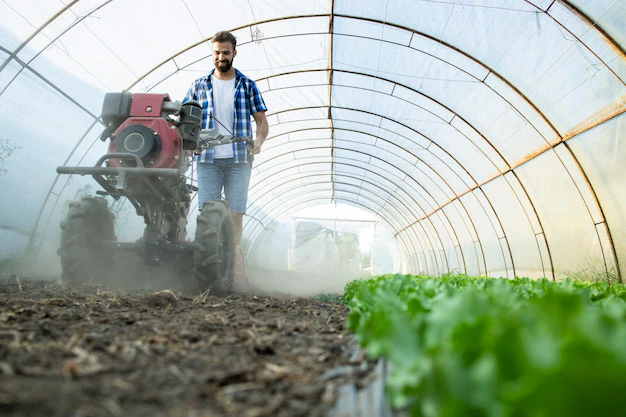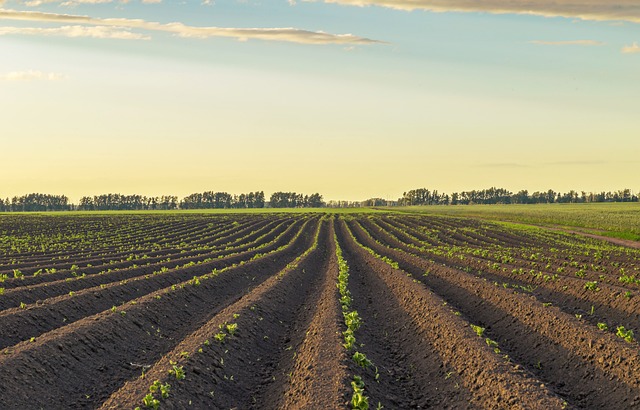Table of Contents
ToggleIntroduction:
In a world where environmental sustainability (easy) and a healthy lifestyle are becoming more and more important, we continue to prioritize the health of the soil, plants, animals, and the entire environment in this modern world as organic farming is a viable solution to many of the problems plaguing modern agriculture, making it an attractive option for farmers and consumers.

Advantages of organic farming
Health Benefits:
One of the primary reasons people choose organic products is the perceived health benefits. Organic produce is free from synthetic pesticides, herbicides, and genetically modified organisms (GMOs). This makes it a safe and healthy option for consumption. Additionally, organic farming practices are promoting the use of natural fertilizers and crop rotation. which can improve the nutritional content of fruits and vegetables.
Environmental Benefits:
Organic farms promote biodiversity and reduce the environmental impact of agriculture. By avoiding synthetic chemicals and genetically modified crops, organic farmers help maintain soil fertility, protect water quality, and promote ecological balance. Organic farms also tend to use less energy and produce fewer greenhouse gas emissions than conventional farms.
Organic farming practices
Soil Management Techniques:
Organic farmers are using various techniques to maintain soil health, such as crop rotation, cover cropping, and composting. These practices help improve soil structure, retain water, and increase nutrient levels, leading to healthier plants and higher yields over time, but the technology is somehow impacting the ecosystem.
Pest and Disease Control Methods:
Instead of relying on chemical pesticides, organic farmers are using natural methods to manage pests and diseases. This can include introducing beneficial insects, using traps and barriers, and practicing crop diversification to disrupt pest cycles. While organic pest management requires more time and effort, it ultimately creates a more balanced and sustainable ecosystem.
Certification Process for Organic Farming
Achieving organic certification involves meeting strict standards set by government agencies or third-party organizations. These standards typically include requirements related to soil management, pest control, and the use of synthetic inputs. Organic certification provides consumers with confidence that the products they are purchasing have been produced according to organic principles.

Challenges in Organic Farming
Pest Management:
One of the biggest challenges organic farmers face is how to manage pests and diseases without using synthetic chemicals. Organic pest control methods can be less effective and more labor intensive than conventional methods, requiring farmers to be vigilant and proactive in protecting their crops, but the benefits of organic farming are many.
Market Demand and Competition:
As the demand for organic products increases, organic producers face intense competition from large conventional farms. In addition, organic quantities and high costs associated with production may make it difficult for small farmers to compete in the market.
Conclusion
Success stories in organic farming
Despite the challenges, many farmers are finding success in organic farming. From small family farms to large-scale operations, countless examples of farmers have adopted organic practices and seen positive results regarding soil health, crop quality, and profitability.
Future trends in organic farming
Even as consumer demand for organic products continues to grow, the agriculture industry is poised for further growth and innovation. Advances in technology, such as precision farming and soil monitoring tools, are helping organic farmers increase efficiency and productivity while reducing their environmental impact and continue to have an impact.
